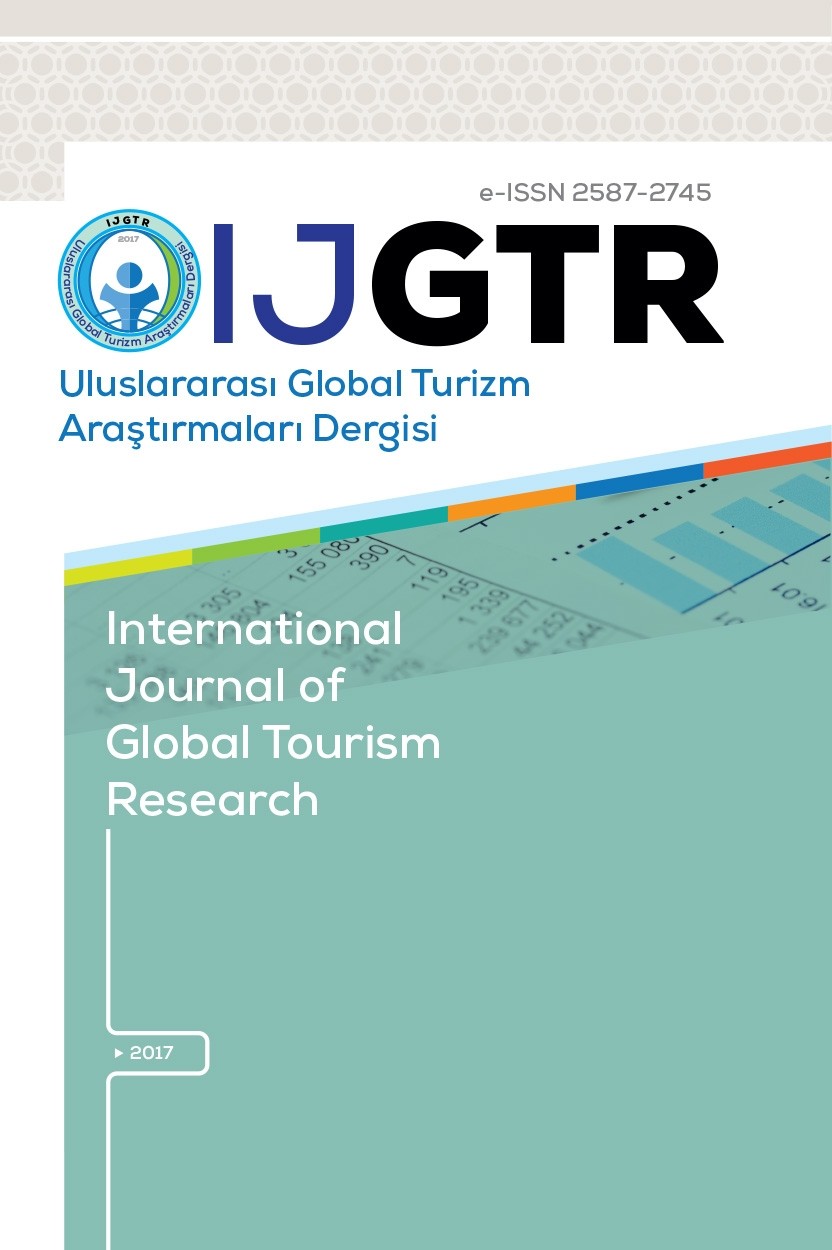HALAL CERTIFICATION PRACTICES IN TOURISM BUSINESSES
Halal certification, Halal practices, Tourism
HALAL CERTIFICATION PRACTICES IN TOURISM BUSINESSES
Halal certification, Halal practices, Tourism,
___
- Demir, M. & Demir, Ş.Ş. (2017). Halal Certification Practices in Tourism. ICTTR - 3rd International Conference on Tourism: Theory, Current Issues and Research, Rome, Italy between 27-29 April 2017
- GİMDES (2017). Gıda ve İhtiyaç Maddeleri Denetleme ve Sertifikalandırma Araştırmaları Derneği Standartları, http://www.gimdes.org (11.02.2017).
- IHI (2016). International Halal Integrity Alliance-IHI Alliance, www.ihialliance.org (17.04.2016).
- Rajagopal, S., Ramanan, S., Visvanathan, R., & Satapathy, S. (2011). Halal certification: implication for marketers in UAE. Journal of Islamic Marketing, 2(2), 138-153.
- Shafie, S., & Othman, M. N. (2006). Halal Certification: an international marketing issues and challenges. In Proceeding at the International IFSAM VIIIth World Congress (pp. 28-30).
- SMIIC (2017). The Standards and Metrology Institute for the Islamic Countries (SMIIC), https://www.smiic.org (13.02.2017).
- TSE (2017). Helal Belgesi, https://www.tse.org.tr/tr/icerikdetay/41/34/helal-belgesi.aspx (11.02.2017).
- WHC (2017). One voice full unity on halal standarts., onhttp://www.worldhalalcouncil.com/ (01.02.2017).
- World Halal Forum (2017). http://www.worldhalalforum.org/ (01.02.2017).
- Zannierah Syed Marzuki, S., Hall, C. M., & Ballantine, P. W. (2012). Restaurant manager and halal certification in Malaysia. Journal of Foodservice Business Research, 15(2), 195-214.
- Başlangıç: 2017
- Yayıncı: Gülay BULGAN
HALAL CERTIFICATION PRACTICES IN TOURISM BUSINESSES
Mahmut DEMİR, Şirvan ŞEN DEMİR
BİRİNCİ KUŞAK İNSAN HAKLARINDAN SEYAHAT ÖZGÜRLÜĞÜNE TÜRKİYE’DE ENGELLİLER AÇISINDAN BAKIŞ
YEREL HALKIN GÖZÜYLE TURİZMDE SÜRDÜRÜLEBİLİRLİK: GOLF TURİZM ÖRNEĞİ
ÖRGÜTSEL BAĞLILIĞIN MESLEKİ BAĞLILIK ÜZERİNE ETKİSİ: KONAKLAMA İŞLETMELERİNDE BİR ARAŞTIRMA
